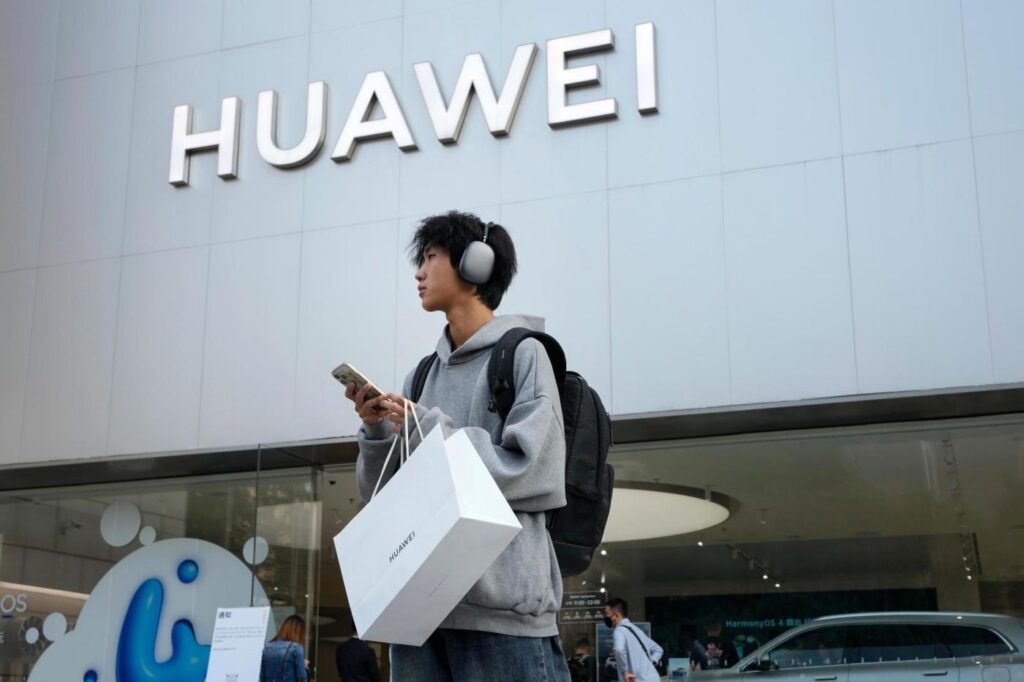BANGKOK (AP) — In a significant legal development, U.S. District Judge Ann Donnelly has ruled that Huawei Technologies, the prominent Chinese telecom giant, must face a slew of criminal charges. The case, which accuses Huawei of racketeering, wire fraud, bank fraud, and other crimes, highlights ongoing tensions between the United States and China over technology and security.
Judge Donnelly’s decision on Tuesday rejected Huawei’s plea to dismiss the 16-count federal indictment, emphasizing that the company’s arguments were premature. This ruling sets the stage for a high-profile legal battle as Huawei navigates allegations of stealing U.S. trade secrets and violating international sanctions.
Allegations and Legal Battle
The U.S. government has accused Huawei and its subsidiaries of a series of illicit activities, including the installation of surveillance equipment that allegedly enabled Iran to monitor protesters during the 2009 anti-government demonstrations. Furthermore, the company is charged with conducting business in North Korea, contravening U.S. sanctions.
These charges are part of a broader strategy initiated during President Donald Trump’s administration, which raised alarms about national security risks posed by Huawei’s involvement in Western high-speed networks. The January 2019 indictment also implicated Huawei in using a Hong Kong shell company, Skycom, to sell equipment to Iran, violating U.S. sanctions.
The Meng Wanzhou Case
Central to the legal proceedings is Meng Wanzhou, Huawei’s chief financial officer and daughter of the company’s founder. Meng was arrested in Canada in late 2018 at the behest of the United States, accused of fraud for misleading HSBC about Huawei’s dealings in Iran. Her arrest and subsequent extradition battle strained diplomatic ties, culminating in a high-stakes prisoner swap in September 2021, which allowed her to return to China.
Huawei’s Response and Strategic Shift
In response to the mounting legal challenges and sanctions, Huawei has been forced to adapt its business strategies. The company has ramped up the development of its own computer chips and other advanced technologies, seeking to reduce reliance on U.S. technology. Moreover, Huawei has shifted its focus towards the Chinese market and sectors such as network technology for hospitals and factories, which are less affected by U.S. sanctions.
Despite these efforts, Huawei continues to face significant hurdles. The sanctions have severely impacted its market share, especially in the global arena where access to U.S. processor chips is crucial.
International and Diplomatic Implications
The legal proceedings against Huawei have broader implications, reflecting the geopolitical tensions between the United States and China. Chinese officials have accused the U.S. of “economic bullying” and using national security as a pretext to oppress Chinese companies. This case is emblematic of the broader trade and technology disputes that have characterized U.S.-China relations in recent years.
Meanwhile, Western allies remain divided on Huawei’s role in their telecommunications infrastructure. Some countries, heeding U.S. warnings, have restricted Huawei’s involvement, while others continue to engage with the company.
Expert Opinions and Future Outlook
Experts suggest that the outcome of this legal battle could have far-reaching consequences for the global tech industry. According to technology analyst James Lewis, “The case against Huawei is not just about one company; it’s about the future of global technology standards and the balance of power in the tech industry.”
“The case against Huawei is not just about one company; it’s about the future of global technology standards and the balance of power in the tech industry.” — James Lewis, Technology Analyst
As the legal proceedings unfold, stakeholders across the globe will be watching closely. The outcome could influence future regulatory frameworks and shape the competitive landscape of the technology sector.
In conclusion, the legal challenges facing Huawei are emblematic of the broader geopolitical and economic tensions between the United States and China. As the case progresses, its implications will likely extend beyond the courtroom, affecting international relations and the global technology market.
